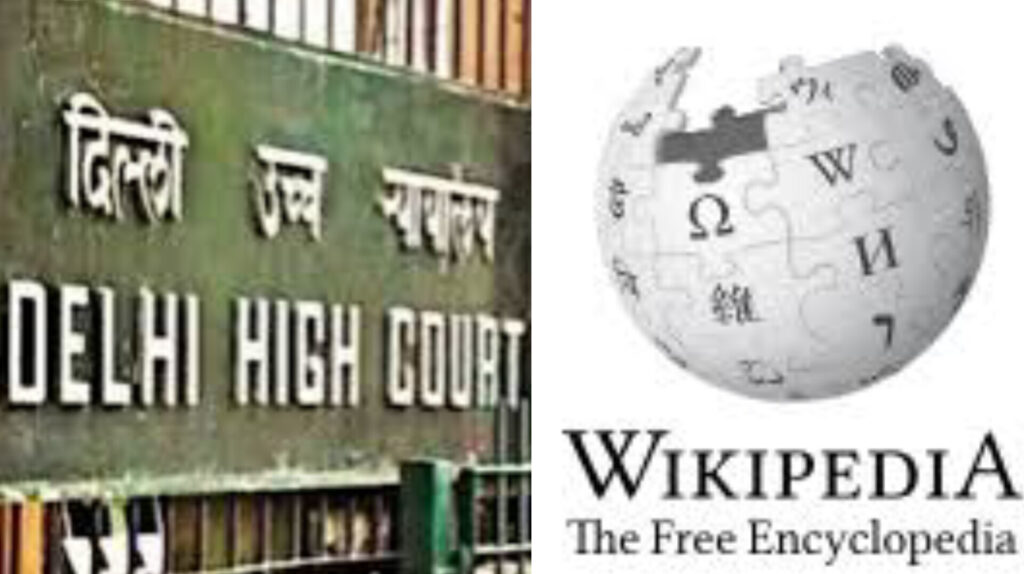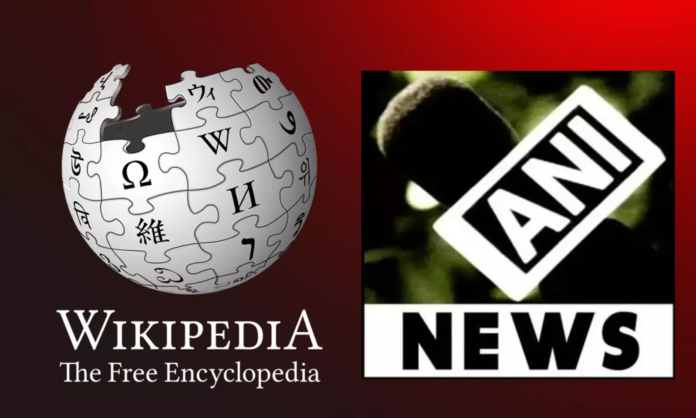In a landmark defamation case filed by news agency ANI against Wikipedia, the Delhi High Court has raised critical questions about the online platform’s editing practices, referring to Wikipedia’s open-access functionality as “dangerous.” This sentiment came from Justice Subramonium Prasad, who expressed concerns over the site’s ease of editing, noting that anyone can alter Wikipedia pages, a feature that allows rapid information sharing but also opens doors to potential misuse.
The ANI vs. Wikipedia Defamation Case: Key Details
ANI has taken legal action against Wikipedia, alleging that the platform allowed defamatory edits to its page, referring to the news agency as a “propaganda tool” for the current government. ANI claims that this misrepresentation damages its credibility and seeks legal intervention to have the content removed. This case has sparked a significant debate over Wikipedia’s user-generated content model, in which articles can be edited by virtually anyone, a feature that Wikipedia argues enhances information democratization and collective knowledge building.
Justice Prasad’s Concerns: Is Open Editing a Flaw?
During the hearing, Justice Prasad questioned the platform’s editing policies, suggesting that Wikipedia’s structure could easily allow for misinformation. “Anybody can edit a page on Wikipedia? What kind of page is this if it is open to anybody (for editing)?” Justice Prasad asked, emphasizing the potential dangers of unrestricted editing on a globally accessible platform.
Senior Advocate Jayant Mehta, representing Wikipedia, argued that while Wikipedia allows user-generated content, it does enforce rules that require contributors to reference credible sources. “Wikipedia is not social media where users maintain personal pages and post unchecked content. It is an encyclopedia that demands cross-referencing and verification from all contributors,” Mehta said, adding that the collaborative model is fundamental to Wikipedia’s mission of creating a comprehensive knowledge database.
ANI’s Stand: ‘Aggregator of Defamation’ or Crowdsourced Knowledge?
Advocate Sidhant Kumar, representing ANI, argued that Wikipedia’s open model has made it an “aggregator of defamation,” contending that it enables unverified and potentially damaging information to be represented as factual. Kumar highlighted that Wikipedia’s reliance on open editing can lead to defamatory content being perpetuated and left unchecked for significant periods. ANI’s legal team insisted on Wikipedia’s accountability in maintaining content accuracy, especially on sensitive topics concerning individual or organizational reputation.
Wikipedia, however, maintains that the platform is self-regulating, with editors constantly monitoring pages for inaccuracies and referencing errors. Advocate Mehta argued that the platform’s credibility rests on its community-based moderation system, where thousands of volunteers globally collaborate to maintain quality. “Wikipedia’s credibility stems from its collaborative model and its commitment to factual cross-referencing,” he argued.

Implications for Open-Source Platforms: Freedom vs. Accountability
The case highlights a broader issue surrounding open-source platforms and their responsibility to curb misinformation. Wikipedia has long been regarded as a knowledge resource, often the first port of call for general information. Yet, its community-driven structure inherently carries the risk of subjective input or biased editing. The Delhi High Court’s scrutiny of Wikipedia’s open-editing model reflects a growing concern about the need for stricter regulation on platforms that disseminate publicly editable content.
The Delhi High Court’s comments could set a precedent for open-source and user-generated content platforms, emphasizing the importance of verifiable content over unrestricted user engagement. The balance between free information and accountability is crucial, and the ANI vs. Wikipedia case could potentially prompt platforms like Wikipedia to reevaluate their editing and monitoring systems, especially on topics prone to political or social bias.
Moving Forward: Striking a Balance
As the case unfolds, it raises pertinent questions: Should Wikipedia and similar platforms introduce stricter controls on who can edit specific types of content? Should they implement additional measures to counteract potential bias, especially on politically sensitive topics? While platforms like Wikipedia offer unparalleled access to knowledge, they are increasingly under scrutiny to ensure that this information remains accurate and impartial.
The court’s evaluation of Wikipedia’s editing system may lead to significant changes, potentially requiring such platforms to impose tighter control over edits on pages related to public figures, corporations, and organizations. Until then, the ANI defamation case serves as a critical reminder of the fine line between open information and responsible content moderation.

